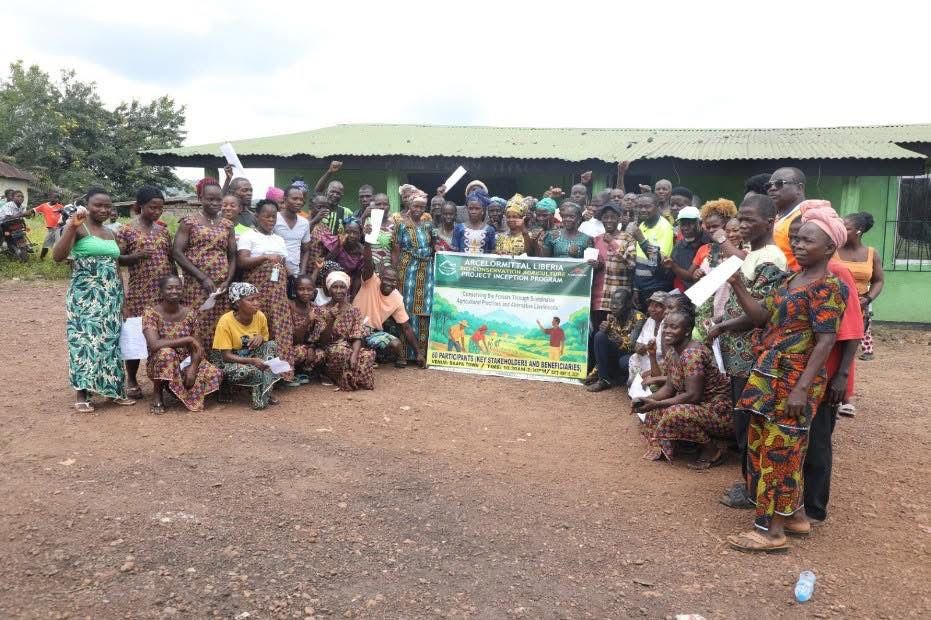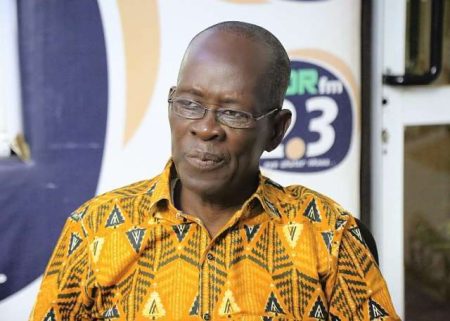ArcelorMittal Liberia (AML) has reaffirmed its commitment to sustainable development by investing over $58,000 in a biodiversity and conservation program aimed at empowering nine communities within the Yarmein belt of Nimba County. This initiative, implemented in collaboration with Humanity Care Liberia, focuses on bolstering sustainable agriculture practices through diverse avenues such as vegetable farming, piggery, poultry raising, and swamp rice cultivation. The program’s core objective is to create sustainable livelihoods for over 60 local stakeholders while simultaneously mitigating the environmental pressures on Liberia’s valuable forest resources. By providing alternative income-generating activities, the project aims to reduce the dependence on traditional practices that often lead to deforestation and habitat degradation. The program underscores AML’s dedication to fostering positive community impact and promoting environmental stewardship.
The launch event held in Baapa highlighted the program’s dual focus on economic empowerment and biodiversity conservation. Community leaders and AML representatives emphasized the project’s commitment to community ownership and sustainability. Samuel Peter, AML’s Superintendent for Biodiversity and Conservation, reiterated that the program’s primary goal is not profit for AML but rather the empowerment of local farmers. The project’s design ensures that all harvests and income generated remain entirely within the communities, promoting self-sufficiency and long-term economic viability. This approach fosters a sense of ownership and encourages active participation within the communities, contributing to the program’s overall success. By investing in local capacity and ensuring that the benefits directly accrue to the participants, AML is laying the groundwork for a sustainable and impactful initiative.
The $58,000 investment will be utilized to provide essential resources, including farming tools, high-quality seeds, and food support to participating farmers. This comprehensive support system addresses the immediate needs of the farmers while equipping them with the necessary tools for long-term success. The provision of food support is crucial in ensuring food security during the initial phases of the project, allowing farmers to focus on developing their agricultural activities without the immediate pressure of providing daily sustenance. This holistic approach considers the various challenges faced by local communities and aims to create a supportive environment conducive to sustainable growth and development.
The project exemplifies a collaborative approach to sustainable development, bringing together corporate social responsibility, local communities, and non-governmental organizations. The partnership between AML and Humanity Care Liberia ensures the effective implementation of the program by combining AML’s resources and commitment with Humanity Care Liberia’s expertise in community development and sustainable agriculture practices. This collaborative model leverages the strengths of both organizations, maximizing the impact of the program and ensuring its long-term sustainability. The initiative serves as a model for how public-private partnerships can effectively address complex challenges and contribute to positive social and environmental change.
The Biodiversity and Conservation Program highlights AML’s broader commitment to environmental sustainability. By investing in projects that promote responsible land use and reduce pressure on natural resources, AML is actively contributing to the preservation of Liberia’s rich biodiversity. This commitment aligns with global efforts to address climate change and promote sustainable development practices. Furthermore, the program demonstrates AML’s recognition of the interconnectedness between environmental health and community well-being. By supporting sustainable livelihoods and empowering local communities, AML is contributing to a more resilient and prosperous future for Liberia.
The program’s success hinges on the active participation and ownership of local communities. The recognition given to local leaders, such as Marie Torlo of the Yekepa Vegetable Gardeners, underscores the importance of community leadership in driving sustainable change. The program serves as an example of how partnerships between corporations and local communities can create tangible positive impacts. By working hand-in-hand with local stakeholders, AML is fostering a sense of shared responsibility and ensuring that the program’s benefits are deeply rooted within the communities it serves. This collaborative approach not only empowers local communities but also fosters a sense of pride and ownership, contributing to the program’s long-term success. The program’s emphasis on community partnership demonstrates AML’s commitment to building strong, sustainable relationships with the communities in which it operates.














